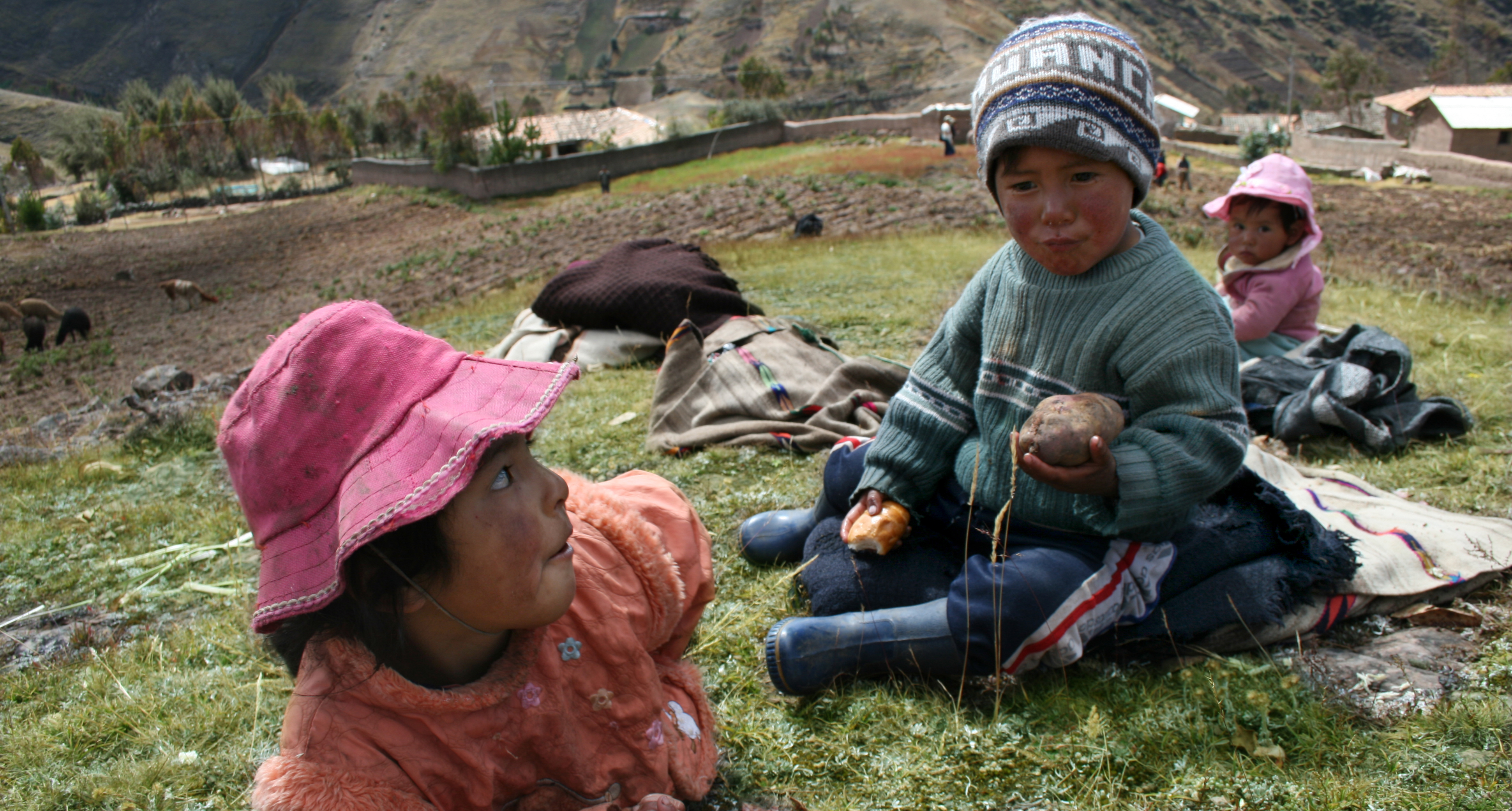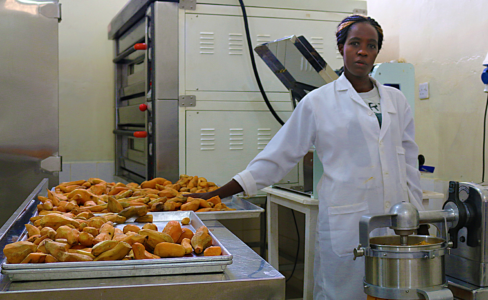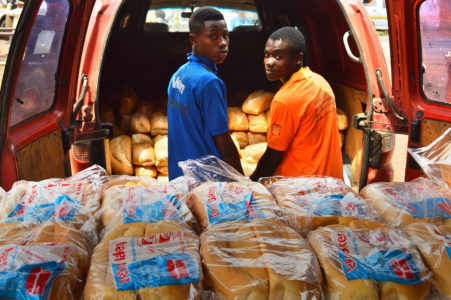
Many women and children in the high Andes suffer from anemia due to an inadequate diet. This project takes a holistic approach to addressing micronutrient deficiency, boosting food security and health and building women’s empowerment by introducing potatoes rich in iron and zinc as part of an integrated agriculture-nutrition approach.

Background
Despite reductions in the incidence of malnutrition in recent years, 41% of children and 21% of women of childbearing age living in the rural Peruvian Andes suffer from iron and zinc deficiency. Given that the local diet is based largely on potato, addressing this issue with biofortified potatoes is a promising option. Potato is an ideal food security crop for challenging environments, such as high mountains, since it is highly efficient at producing calories, consumes limited water and has a short maturity period, meaning it can often be harvested before other crops. Scientists at the International Potato Center (CIP) have successfully bred potatoes with increased iron and zinc content, which can provide up to 31% of a child’s daily requirements.
This project pilots a holistic approach to address iron and zinc deficiency among target households, as well as to improve food security, nutrition in general, gender equality and empowerment. The introduction of biofortified potatoes will be complemented by institutional innovations linking agriculture, markets, education and social protection, with a view to creating an enabling environment through policy change and the formulation of a model for achieving wide-scale impact.
Objectives
- Adaption of a framework for gender-responsive scaling of biofortified potatoes as a key component of a more diversified diet to reduce anemia;
- Design and implementation of a pilot intervention;
- Evaluation of the results from the pilot intervention with participating institutions; and
- Generation of policy recomm
Approach
The project builds on earlier work in Africa and elsewhere linking innovation in agriculture with social protection programs. The key innovation in this case is the introduction of high-yielding, iron- and zinc-rich potatoes with good levels of resistance to crop diseases. These will be disseminated in a package that promotes additional nutritious foods as part of an integrated agriculture and nutrition intervention. The pilot location is Curgos district (northern Peru), which has the highest rate of poverty in the country and where communities are highly vulnerable to the impacts of climate change. Gender analysis will guide the scaling process and capacity development of partners, with a view to creating more equitable outcomes. The project is in alignment with the government of Peru’s strategy to combat malnutrition.
Expected outcomes
The initiative will assess the current enabling environment for the promotion of biofortified foods. The analysis will then be used to develop a scaling strategy. This will be tested in Curgos district, where several social protection programs (including school meals) are already being delivered and where there is strong government interest in linking agriculture with nutrition interventions. Results will be expressed in terms of the enhanced impact of social protection programs on food security, nutrition, gender equality and empowerment. Around 400 families with children and/or women of childbearing age will receive improved potato planting materials and agronomic information, as well as education on nutrition.
The team will identify entry points, gaps and opportunities to reduce gender inequalities and empower women in local education and decision-making. Partner institutions will integrate agriculture, economic inclusion and nutrition interventions in their social protection programs, with public and private sector actors adopting genderresponsive approaches.
A final workshop will disseminate the results of the pilot, alongside policy briefs and a journal article, with a goal of influencing the development of new policies to promote the approach more widely.
Key outputs
| Numbers | |
| Families with children/women of childbearing age receive agricultural innovations and nutrition education | 400 |
| Children/women of childbearing age have improved diets | 400 |
Contact
Guy Hareau
CIP, Peru
g.hareau@cgiar.org
Thanks to our donors



